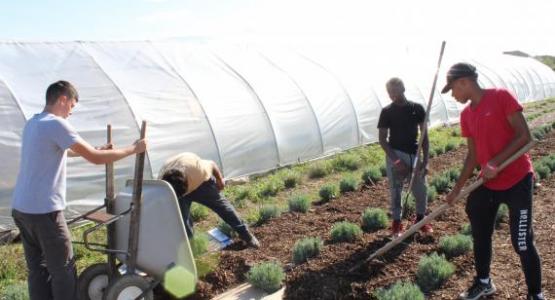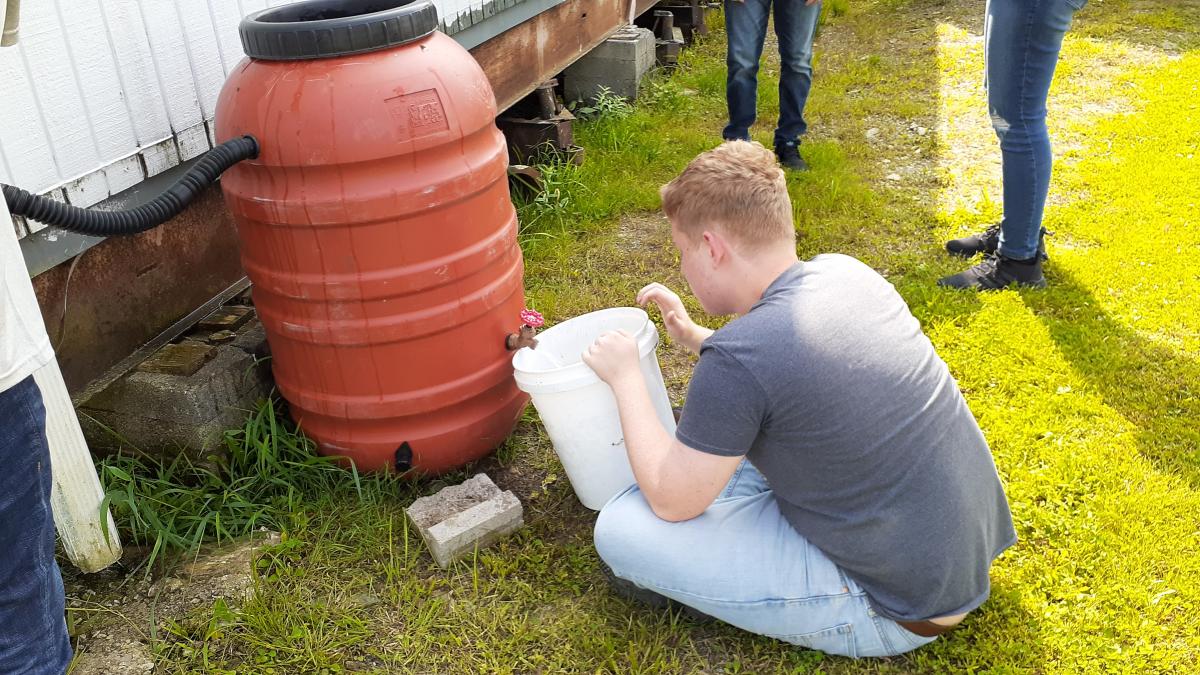
Adventist Schools Help Students Develop Green Habits for the Future
Story by Jenevieve Lettsome & V. Michelle Bernard
Schools around the Columbia Union Conference are also striving to teach students about caring for the earth, using various activities such as installing solar panels and planting gardens.
Mountain View Conference’s Highland Adventist School in Elkins, W.Va., recently received a rain barrel from the West Virginia Department of Environmental Protection (WVDEP) Division of Water and Waste Management to help provide water for their greenhouse growing program.
 Besides being a water source and a learning opportunity for students, WVDEP notes that the barrel helps eliminate non-point pollution caused by melting snow or rain runoff that might pick up and carry away pollutants that would eventually end up back in the various water sources.
Besides being a water source and a learning opportunity for students, WVDEP notes that the barrel helps eliminate non-point pollution caused by melting snow or rain runoff that might pick up and carry away pollutants that would eventually end up back in the various water sources.
Principal Cheryl Jacko says, “I live and work in ‘coal country.’ Issues surrounding environmental stewardship have very real consequences for the families, communities and economies I serve. Solutions are not easy or simplistic. I believe our global responsibility regarding care of the earth is to continue to find safer, cleaner ways to generate power, provide transportation, care for refuse, etc. … I have no direct influence over the global and national decision-making regarding caring for our environment, but I can teach my students to make a difference in their sphere. So we promote and teach recycling, composting, reusing and reducing consumerism.”
 Besides having a USDA-certified organic farm that provides fresh produce and grains to community members through several food stands, Pennsylvania Conference’s Blue Mountain Academy (BMA) started conserving more energy seven years ago by simply converting 20 acres of lawn into hay fields. Prior to this, the school was spending $10,000 a year on fertilizer and spraying for dandelions.
Besides having a USDA-certified organic farm that provides fresh produce and grains to community members through several food stands, Pennsylvania Conference’s Blue Mountain Academy (BMA) started conserving more energy seven years ago by simply converting 20 acres of lawn into hay fields. Prior to this, the school was spending $10,000 a year on fertilizer and spraying for dandelions.
The school, located in Hamburg, has saved approximately 234-man hours in mowing time, 478 gallons of diesel (at approximately $1,200) and reduced wear and tear on machines, reports Ruben Olm, Enrollment and Development director, who adds that sale of the hay has averaged about $10,000 per year.
The school has also started a recycling program for paper, cardboard, plastics, glass, metal and food waste. “It is our goal that by learning and doing these things at BMA, our students will develop habits that will make them good environmental and fiscal stewards of the blessings that God gives them in the future,” says Olm.
 Read and share these articles from the March/April 2021Visitor:
Read and share these articles from the March/April 2021Visitor:
- Editorial: Make Me a Steward
- For the Beauty of the Earth
- Adventist Schools Help Students Develop Greener Habits for the Future
Take the Greener Earth Challenge - Association of Adventist Women Presents Weigley a Champion of Justice Award
- Download the Columbia Union App for This Month's Year of the Bible Devotionals

Add new comment